Instructor Archives
These scholars, filmmakers, writers, festival programmers, curators, and artists have volunteered - and in many cases continue to volunteer - their time to create and contribute to courses and lectures for the Montréal community.
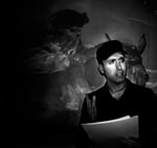
Chris Alexander has spent his life eating, sleeping and breathing movies, breaking only to obsess over music. He is the editor-in-chief of Fangoria magazine, has released several collections of his own music, has written a book about movies he loves, and his first feature film – which he wrote, directed, co-shot, edited, composed the music, handled FX and even catered – Blood for Irina will be released via Autonomy Pictures later this year. Visit Chris at www.chris-alexander.ca.
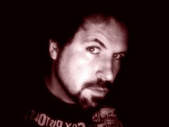
Stuart "Feedback" Andrews has, since 2005, been a regular contributor to Rue Morgue Magazine and a spoken word contributor to Rue Morgue Radio where he’s interviewed many of the horror genre’s most celebrated figures. Based in Toronto, he studied film at Toronto’s York University and was a student of influential genre film critic Robin Wood (Hitchcock’s Films). Excerpts from his career retrospective interview with legendary filmmaker George A. Romero appear on the special features of the Weinstein Company’s 40th anniversary DVD reissue of Night of the Living Dead. He’s also the host of CKLN radio’s long running weekly film show Cinephobia Radio.

Melanie Ashe is currently undertaking her Masters in Film Studies at Concordia University, where she has been doing research in environmental film industries, superheroes and pop culture. Growing up in Australia, she developed a fascination with Australian cinema and storytelling, and a love of Oz-Horror films. She has published articles in Reinvention journal, written for online journals Peephole and Screen Machine, and experiments in playful video-criticism. In a previous life, she volunteered at ACMI (Australian Centre for the Moving Image) teaching kids how to make a horror movie in 3 days.

David Austin is the author of Fear of a Black Nation: Race, Sex and Security in Sixties Montreal (2013), winner of the 2014 Casa de las Americas Prize. He has also produced radio documentaries for CBC’s Ideas on the life and work of C.L.R. James (The Black Jacobin, 2004) and Frantz Fanon (The Wretched of the Earth, 2006) and he currently teaches in the Department of Humanities, Philosophy and Religion at John Abbott College.
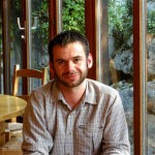
Daniel Bird is a writer, filmmaker, and one of the world’s leading scholars on Eastern European cult cinema. He has curated numerous retrospectives, overseen film restorations, participated in DVD commentaries and is best known as the biographer of both Walerian Borowczyk and Andrzej Żuławski.
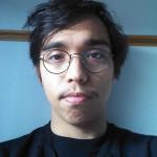
Ariel Esteban Cayer is a writer and film programmer based in Montréal. He holds a BFA in Film Studies from Concordia University and has been working with the Fantasia International Film Festival since 2012, where he has been a programmer since 2013. He is also the director and curator of Film POP, the film section of the POP Montréal International Music Festival, since 2014. As a freelance writer, he has contributed to genre film publications such as Spectacular Optical, Fangoria, and Rue Morgue, as well as francophone outlets such as Panorama-Cinéma, 24 Images, Voir and Vice Québec.
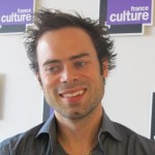
Maxime Coulombe est sociologue et historien de l’art. Il travaille sur le rapport à l’image dans les sociétés occidentales. Il a notamment publié aux Presses universitaires de France : Le monde sans fin des jeux vidéo, PUF, 2010, et Petite philosophie du zombie, PUF 2012. Il termine actuellement un ouvrage portant sur la peur de la ressemblance en histoire de l’art, à paraître en 2015.
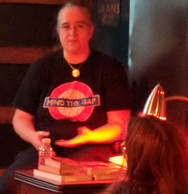
Mariane Desautels has been a part of Montreal's horror community for many years. A longtime member of the community that became MMS, Mariane gave the second lecture in the Monstrum Brood series, "Down the 'Rabid' Hole with Midnight Meat Train: Subways and Horror," in March of 2018 (pictured).
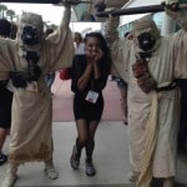
Ayanna Dozier is a doctoral student in the department of Art History and Communication Studies at McGill University. Prior to beginning her doctoral studies at McGill, she obtained her undergraduate degree in Art History and French at Chapman University and her graduate degree at New York University in the department of Media, Culture, and Communication. Ayanna first encountered horror during her formative years through the work of Stephen King when she saw the television two-part movie It at the age of four, followed by Misery at age five and Carrie at age seven. Horror, for Ayanna, offers generous explorations of viewing and experiencing queerness, as performed through bodily difference, on screen. She actively seeks to incorporate the genre in her research on any level all while negotiating her still prevalent and persistent nightmares of Pennywise; on a completely unrelated note, she posses a mild, not disruptive, case of coulrophobia. She currently resides in Montréal.
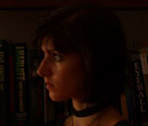
Charlie Ellbé is a graduate from the M. A. Film Studies program at Concordia University. She is now Coordinator of the Moving Image at the Concordia Visual Media Resources. In the summer of 2010, Charlie received a travel fund to go to the USC and Margaret Herrick Library archives to research her Master’s thesis. With access to original documentation from the Hollywood studios and personal writings from art directors of the classical studio era, Charlie was able to complete her thesis on art direction in Universal Studios’ horror films of the 1930s with original research. She also served on the jury of the Montreal Underground Film Festival.

Éric Falardeau holds a Master’s degree in Film Studies from the Université de Montréal. His short films have been screened at festivals from around the world (France, Spain, Italy, Slovakia, Germany, South Africa, UK, USA, Brazil and Canada); attracting new fans and critical acclaim along the way. In 2011, his first animated film Crépuscule won a special mention “For its bold address of sexuality in animation” at the international FanTasia Film Festival (Montreal, Canada). Thanatomorphose is his first full-length feature. He is the guest curator for the new exhibition, “Secrets and Illusions – The Magic of Special Effects” (Cinémathèque québécoise). Éric Falardeau est titulaire d’une maîtrise en études cinématographiques obtenue à l’Université de Montréal. Il est auteur, conférencier, enseignant et archiviste. Il a réalisé des courts-métrages qui ont été projetés dans de nombreux festivals internationaux où ils ont remporté plusieurs prix. Crépuscule est son premier film d’animation. Thanatomorphose, (2012) est son premier long-métrage. Il est le commissaire invité de l’exposition permanente « Secrets et Illusions – la magie des effets spéciaux » (Cinémathèque québécoise).

Kier-La Janisse is a writer and film programmer based in Montreal. She is the editor of Fangoria.com, co-founded the Blue Sunshine Psychotronic Film Centre and The Miskatonic Institute of Horror Studies, and is a film programmer for POP Montreal, Fantastic Fest and SF Indie. She has been a programmer for the Alamo Drafthouse Cinema in Austin, Texas, founded the CineMuerte Horror Film Festival and the Big Smash! Music-on-Film Festival (both in Vancouver) and was the subject of the documentary Celluloid Horror (2005). She has written for Shindig!, Filmmaker, Rue Morgue and Fangoria magazines, has contributed to The Scarecrow Movie Guide (Sasquatch Books, 2004) and Destroy All Movies!! The Complete Guide to Punk on Film (Fantagraphics, 2010), and is the author of A Violent Professional: The Films of Luciano Rossi (FAB Press, 2007) and House of Psychotic Women (FAB Press, 2012).
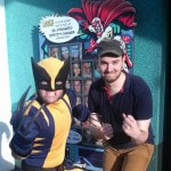
Dru Jeffries has a PhD in Film and Moving Image Studies from Concordia University, with a MA in Cinema Studies from the University of Toronto. His work on the intersections between comics and cinema can be read in Quarterly Review of Film and Video 31.1, Cineaction 77, as well as his dissertation (2014).

Simon Laperrière est programmateur pour le Festival Fantasia depuis 2007. Titulaire d’un baccalauréat en littérature comparée et études cinématographiques, il rédige actuellement un mémoire de maîtrise traitant du mythe des snuff movies. En plus d’avoir récemment participé à plusieurs colloques, il a été publié chez Hors Champ, 24 Images, Offscreen et Twitch Film et a, au cours des années, terrorisé plusieurs stations de radio universitaire. Depuis 2010, il dirige à Fantasia « Camera Lucida », une section vouée aux cinémas de genres iconoclaste. Ses intérêts incluent le cinéma contemporain, la littérature ergodique, la fiction-férale et, bien évidemment, les nanars.
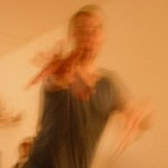
Cory Legassic is a faculty member of the Humanities and Sociology Departments at Dawson College, Montréal, Québec, where he teaches courses on Social Movements, Social Justice Education, Anti-Racism, Media and Feminist Masculinities. His article “Reasonable Accommodation as a Settling Concept” was published in The Canadian Women’s Studies Journal in their special issue on Women and Canadian Multiculturalism (2010). Other publications include an article on horror icon Rondo Hatton and the politics of disfigurement in Recovering 1940s Horror Cinema: Traces of a Lost Decade (Lexington, 2015).

Lateef Martin is the founder of transmedia company Miscellaneum Studios. He is also illustrator and co-writer of their first project: Seven years after a zombie apocalypse, Montréal must adapt to a world full of the undead. Welcome to the world of Z’isle. It is a comic-centered transmedia property that includes a comic book series and video game (under development). Each stand alone, but tell a greater story in combination. This format and the world itself welcomes the audience as co-creators of the locations, characters, and history. Z’isle is currently on issue four of nine of Volume one.

Maude Michaud is a Montreal-based writer-director who specializes in genre entertainment. Her debut feature film DYS- World Premiered in July 2014 at the Fantasia International Film Festival where it won the Audience Award for Best Canadian Feature. Her body of work includes over a dozen critically acclaimed short films which have toured the international festival circuit. She recently obtained her Master’s degree in Media Studies at Concordia University. She also created a documentary web series about the women in horror movement which served as a basis for her thesis project: “Horror Grrrls: Resistance and Agency within the Interpretive Community of Women Horror Filmmakers”.
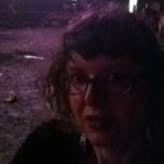
Ursula Misztal moved to Montreal in 1996 while finishing a Master’s Degree at the Centre for the Study of Theory and Criticism in London, Ontario. She has been busy ever since trying to master the art of teaching while working as a Literature instructor at Dawson College. Favourite courses include Feminism and Philosophy (New School), Utopia/Dystopia, Literature and Culture (Creative Arts Language and Literature program). The intersection between literature and science has become a recent interest.

Shalon Noble loves all things gothic. She holds a Ph.D. from Western University and teaches in the English department at Dawson College in Montréal. She studies and teaches Romanticism, ecocriticism, and theory, and her article about John Clare’s asylum poetry is forthcoming. Her current research is on the nature in and of Frankenstein.
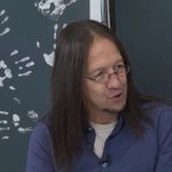
Bernard Perron est professeur titulaire au département d’histoire de l’art et d’études cinématographiques à l’Université de Montréal. Fan d’horreur, il aime bien jouer à se faire peur en lisant des romans et des bandes dessinées, regardant des films et s’immergeant dans des jeux vidéo. Il a entre autres dirigé l’ouvrage Horror Video Game: Essays on the Fusion of Fear and Play (2009), et écrit Silent Hill: The Terror Engine (2012, version française en 2016) ainsi que The World of Scary Video Games: A Study in Videoludic Horror (2018). / Bernard Perron, a professor of art history and cinema at Université de Montréal, is a leading scholar of horror video games and interactive cinema. His books include the edited collection,Horror Video Game: Essays on the Fusion of Fear and Play (2009), as well as Silent Hill: The Terror Engine (2012, version français en 2016), and the upcoming The World of Scary Video Games: A Study in Videoludic Horror (2018).

Anna Phelan graduated with a B.A. in Film Studies from Queen’s University in 2001 and followed that up with an M.A. in Film Studies from Concordia University in 2005. Her thirst for knowledge not yet quenched, she returned to Concordia in 2007 for a Graduate Diploma in Journalism. She was a film critic for Hour and was most recently seen chasing media and filmmakers through Concordia’s Hall Building as the Director of English Communications at the 2010 Fantasia International Film Festival.
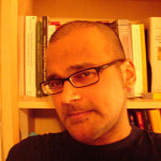
Pradeep Pillai, PhD, is a research scientist and theoretician working in evolutionary ecology. He divides his time between Boston and Montreal.

Papagena Robbins, a native of San Francisco, recently finished her PhD in the Film and Moving Image Studies Doctoral program at Concordia University, where she has taught non-fiction film, writing, and film history. Her research looks to the baroque critical methodologies of recent archive-based city films to shed light on new/old uses of the moving image archive to cultivate historical consciousness as opposed to historical narrative. She also curates special programs of formally challenging documentaries for the Sebastopol Documentary Film Festival in California, and is editing two up-coming special issues of the online, peer-review, film journal, Synoptique: one on film festival networks, and another on the moving image archive in the 21st century. In 2012, Papagena and Monstrum co-director, Kristopher Woofter co-wrote and published, “Gothumentary: The Gothic Unsettling of Documentary’s Rhetoric of Rationality” in the Italian literary journal Textus, an experience that remains one of her most satisfying intellectual collaborations to date.
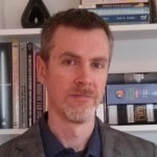
Ned Schantz is a professor in the Department of English at McGill University, where he teaches courses on Hitchcock, horror, and the uncanny. His work on Hitchcock can be found in the journal Camera Obscura (2010) and in his book Gossip, Letters, Phones: The Scandal of Female Networks in Film and Literature (Oxford 2008). His article on reenactment and Grizzly Man appeared in the Fall 2013 issue of Criticism.

Carl Sederholm is Associate Professor of Humanities at Brigham Young University in Provo, Utah. His publications include, “What Screams Are Made of: Representing Cosmic Fear in H.P. Lovecraft’s ‘Pickman’s Model'” (2006), and the books, Poe, "The House of Usher" and the American Gothic (2009) and Adapting Poe (2012) (both with Dennis Perry), and The Age of Lovecraft (with Jeffrey Weinstock) (University of Minnesota Press, 2016).

Jay Shea teaches in the Department of English at Dawson College in Montreal. Years before becoming a Shakespearean and receiving a PhD in English from McGill University, Jay was weaned on low-budget horror films broadcast on local Chicago television.

Philip L. Simpson received his bachelor’s and master’s degrees in English from Eastern Illinois University in 1986 and 1989, respectively, and his doctorate in American Literature from Southern Illinois University in 1996. He serves as Provost of the Titusville Campus of Brevard Community College in Florida. Before that, he was a professor of Communications and Humanities at the Palm Bay campus of Brevard Community College for eight years and Department Chair of Liberal Arts for five years. He also served as President of the Popular Culture Association and Area Chair of Horror for the Association. He received the Association’s Felicia Campbell Area Chair Award in 2006. He currently serves as Area Co-Chair of the Stephen King Area and the Vampire Area for the Association and sits on the editorial board of the Journal of Popular Culture. His first book, Psycho Paths: Tracking the Serial Killer through Contemporary American Film and Fiction, was published in 2000 by Southern Illinois University Press; his second book, Making Murder: The Fiction of Thomas Harris, was published in 2010 by Praeger Press. He is the author of numerous other published essays on film, literature, popular culture, and horror.
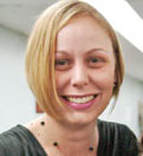
Candis Steenbergen
Candis cut her horror teeth at an early age, sneaking scary books off her dad’s bookshelf and reading by flashlight late into the night. She graduated to slasher films, B-movies and creature-features shortly thereafter. She received her PhD in Interdisciplinary Humanities from Concordia in 2009, and has been a lecturer at the Simone de Beauvoir Institute of Women’s Studies since 2002, teaching classes on feminism and popular culture, girls and girlhoods, deviant bodies, postfeminism and Marxist analysis. She also teaches courses revolving around issues of representation, power and the media in the Humanities department at John Abbott College.
Candis cut her horror teeth at an early age, sneaking scary books off her dad’s bookshelf and reading by flashlight late into the night. She graduated to slasher films, B-movies and creature-features shortly thereafter. She received her PhD in Interdisciplinary Humanities from Concordia in 2009, and has been a lecturer at the Simone de Beauvoir Institute of Women’s Studies since 2002, teaching classes on feminism and popular culture, girls and girlhoods, deviant bodies, postfeminism and Marxist analysis. She also teaches courses revolving around issues of representation, power and the media in the Humanities department at John Abbott College.

Donato Totaro received his PhD in Film & Television from the University of Warwick (UK) and has been a Film Studies lecturer at Concordia University (Montreal, Canada) since 1990. Lecture courses taught include "Film Comedy," "Film Aesthetics," "Montage Aesthetics," "History of Film to 1959," "Horror and Fantasy," "The Good, the Bad, and the Ugly: Italian Popular Genres" and "Moving Camera Aesthetics." Seminars taught include "The Art and Practice of Film Criticism," "Discourses on the Horror Genre," and "Time,Temporality and Cinema." Totaro has been the editor of the longest running monthly online film journal, Offscreen, since its inception in 1997, and member of AQCC "Association québécoise des critiques de cinéma" since 2004. Totaro has published extensively on horror cinema, including entries on South American horror and Jose Mojica Marins in Historical Dictionary of South American Films, ed Peter Rist (2014), essays in Cult TV (2010), 100 European Horror Films (2007), The Cinema of Japan and Korea (2004), Fear Without Frontiers (2003), and Eaten Alive!: Italian Cannibal and Zombie Movies. He is currently preparing a manuscript entitled Time and the Long Take in Narrative Cinema.
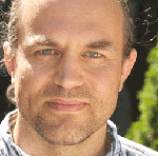
Chris Whittaker is a physics teacher and Coordinator of the Science Program at Dawson College. He has a Masters Degree in Engineering Physics from Queen’s University where he specialized in aeronautics and nuclear engineering. At Dawson, he created a course for non-science students that explores a variety of topics in physics through movies and TV shows. Before his teaching career, Chris also completed a Masters Degree in Social Work and worked for several years in emergency mental health, with at-risk-youth and as an intake worker at a CLSC. Along the way he also managed to do two radio documentaries for the CBC Radio One program Ideas, including one on how size matters in engineering, biology and the movies.

Annaëlle Winand is a PhD student at l’Université de Montréal and film programmer at the Montreal Underground Film Festival. She grew up in Belgium where she studied history and archival science all while developing a passion for horror, surrealist and experimental cinema. She has written about horror for different Belgian and French websites and magazines (Kweb, Sinok, Desperatezombie). Her research now focuses on the use of archives in experimental found footage films.
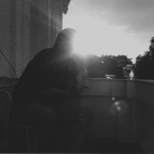
Michael Wood earned his PhD from the McGill Institute of Islamic Studies (2004), where he focused on the history and politics of Indonesia. He is a full time faculty member in the Department of Humanities, Dawson College. His current research interests include the use and misuse of historical themes and symbols for purposes of nation building, regime legitimization and national branding in Indonesia and the Balkans. Additionally, he has a background in archaeology, having been involved in the excavations of a Roman bathhouse at Tel Dor, Israel, a Mayan palace at Cahel Pech, Belize and the Iron Age fortifications of Tell Jawa, Jordan. He has been interested in pseudo-archaeology, popular misconceptions of the past involving lost civilizations and ancient aliens, since the original broadcasts of the show In Search of in the late 1970’s. He has also held a long interest in the fantasy and horror works of Robert E, Howard, the creator of Conan and has presented on both of these subjects at the Miskatonic Institute. His publications include Official History in Modern Indonesia: New Order Perceptions and Counterviews (2005), “Indonesian Nationalism” in Nations and Nationalism in Global Perspective: An Encyclopedia of Origins, Development and Contemporary Transitions (2008), and “Archaeology, National Histories and National Borders in Southeast Asia" in The Borderlands of Southeast Asia: Geopolitics, Terrorism and Globalization (2011).
